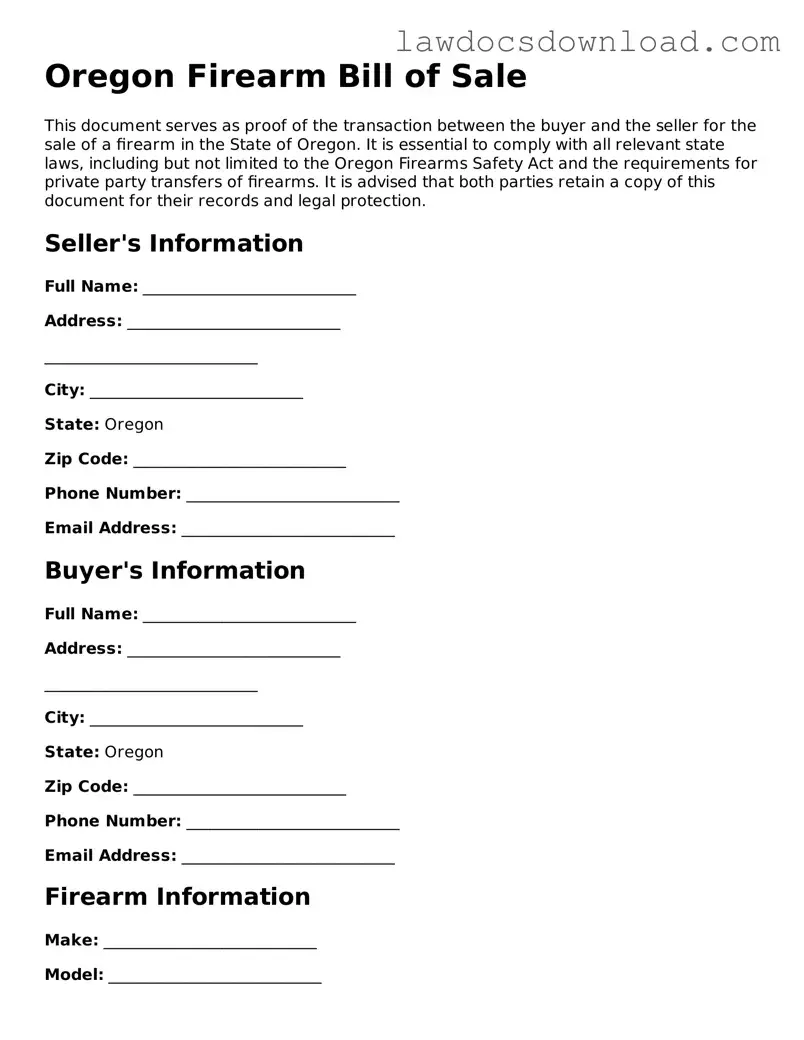Legal Oregon Firearm Bill of Sale Form
The Oregon Firearm Bill of Sale form serves as a crucial document in the private sale of firearms within the state. It acts as a formal record, documenting the details of the transaction between the seller and the buyer. This document is essential for both legal protection and compliance with state law.
Launch Firearm Bill of Sale Editor Here

Legal Oregon Firearm Bill of Sale Form
Launch Firearm Bill of Sale Editor Here

Launch Firearm Bill of Sale Editor Here
or
Free Firearm Bill of Sale
Get this form done in minutes
Complete your Firearm Bill of Sale online and download the final PDF.